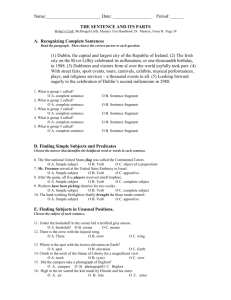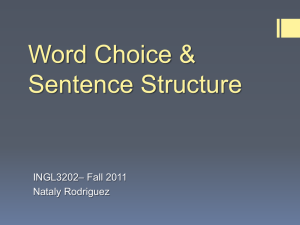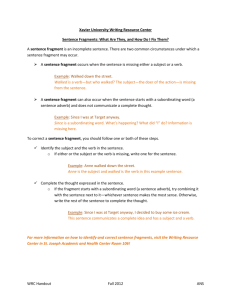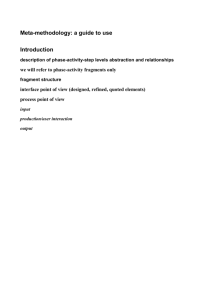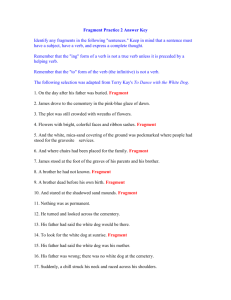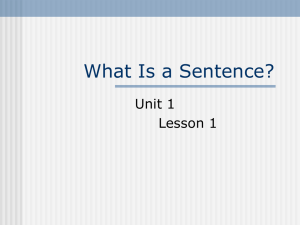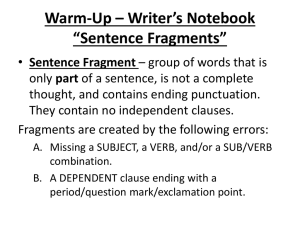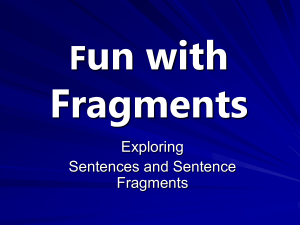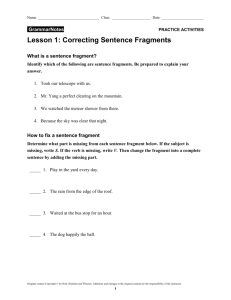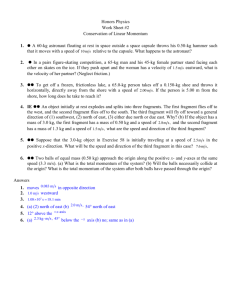THE SENTENCE FRAGMENT
advertisement
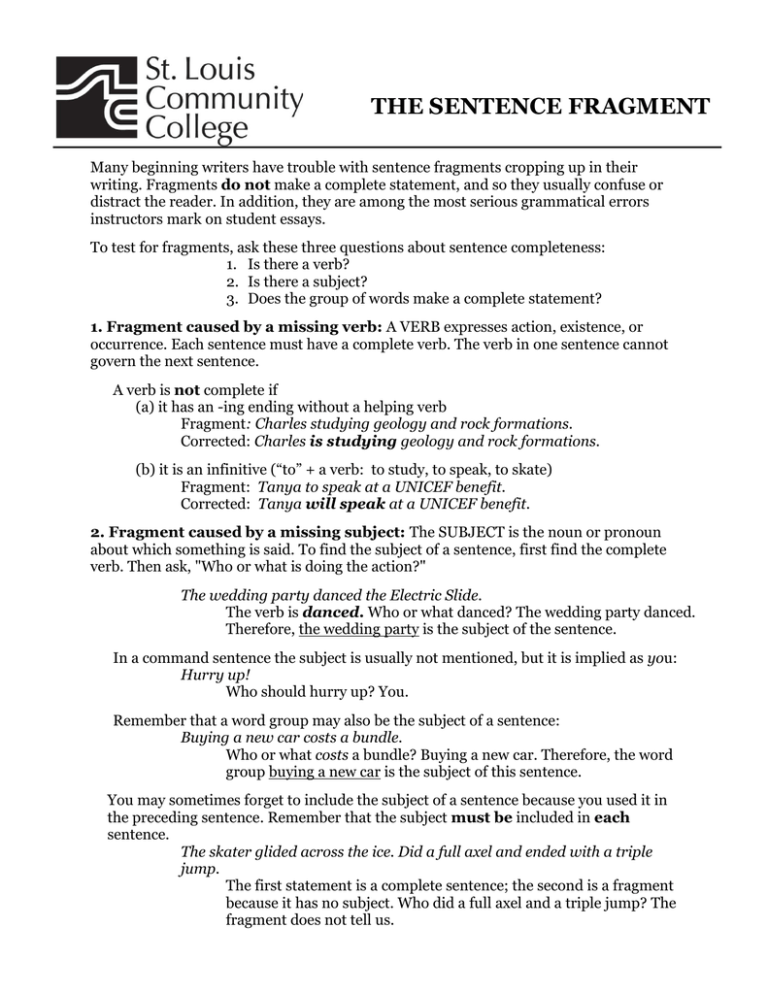
THE SENTENCE FRAGMENT Many beginning writers have trouble with sentence fragments cropping up in their writing. Fragments do not make a complete statement, and so they usually confuse or distract the reader. In addition, they are among the most serious grammatical errors instructors mark on student essays. To test for fragments, ask these three questions about sentence completeness: 1. Is there a verb? 2. Is there a subject? 3. Does the group of words make a complete statement? 1. Fragment caused by a missing verb: A VERB expresses action, existence, or occurrence. Each sentence must have a complete verb. The verb in one sentence cannot govern the next sentence. A verb is not complete if (a) it has an -ing ending without a helping verb Fragment: Charles studying geology and rock formations. Corrected: Charles is studying geology and rock formations. (b) it is an infinitive (“to” + a verb: to study, to speak, to skate) Fragment: Tanya to speak at a UNICEF benefit. Corrected: Tanya will speak at a UNICEF benefit. 2. Fragment caused by a missing subject: The SUBJECT is the noun or pronoun about which something is said. To find the subject of a sentence, first find the complete verb. Then ask, "Who or what is doing the action?" The wedding party danced the Electric Slide. The verb is danced. Who or what danced? The wedding party danced. Therefore, the wedding party is the subject of the sentence. In a command sentence the subject is usually not mentioned, but it is implied as you: Hurry up! Who should hurry up? You. Remember that a word group may also be the subject of a sentence: Buying a new car costs a bundle. Who or what costs a bundle? Buying a new car. Therefore, the word group buying a new car is the subject of this sentence. You may sometimes forget to include the subject of a sentence because you used it in the preceding sentence. Remember that the subject must be included in each sentence. The skater glided across the ice. Did a full axel and ended with a triple jump. The first statement is a complete sentence; the second is a fragment because it has no subject. Who did a full axel and a triple jump? The fragment does not tell us. You can correct this fragment in two ways: (a) Connect the fragment to the preceding sentence. The skater glided across the ice, did a full axel and ended with a triple jump. (b) Add a subject to the fragment. The skater glided across the ice. She did a full axel and ended with a triple jump. 3. Fragment caused by a dependent word: If the verb and its subject are introduced by a DEPENDENT WORD, you have written a dependent clause, not a complete sentence. It does not express a complete thought. Maria likes Meramec very much. (sentence) Because Maria likes Meramec very much. (fragment) The second statement is a fragment, even though it has a subject and a verb, because it doesn’t express a complete thought. To correct a fragment caused by a DEPENDENT WORD: (a) Complete the fragment with the necessary words. The building which was badly damaged. The building which was badly damaged has been torn down. (b) Omit the dependent word, rewriting the sentence without it. The building which was badly damaged. The building was badly damaged. (c) Attach the fragment to the previous sentence or to the one that follows, whichever is more closely connected in thought to the fragment. The wreckers tore down the eyesore. The building which was badly damaged. The wreckers tore down the eyesore, the building which was badly damaged. DEPENDENT WORDS: after how although if as in order that as if since because so before though so that even if than even that ever since though unless until what whatever when whenever where whereas wherever This document was developed by the College Writing Center STLCC-Meramec Revised 2004 whether which whichever while who whom whomever whose why
